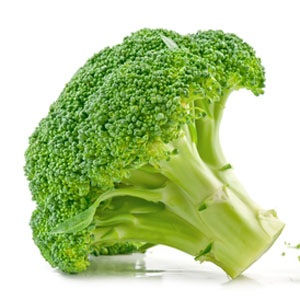
However, more recent results have indicated that vitamin K may also be involved in other body functions such as preservation of bone health and prevention of heart disease.
In addition, there are indications that people eating a refined western diet may be vulnerable to vitamin K deficiencies.
Bone health
The maintenance of a healthy bone structure is essential for the prevention of osteoporosis in later life.
A number of recent studies have compared the effect of vitamin K supplementation with other regimes that improve bone strength, and found that this vitamin can improve bone density.
Another indication of vitamin K's role in bone health, is the finding that patients with low mineral density (a symptom of osteoporosis), also have low levels of circulating vitamin K.
Vitamin K was also able to reduce loss of bone tissue in a study that compared the use of a traditional anti-osteoporosis supplement (calcium, magnesium, zinc and vitamin D) to the use of such a supplement combined with vitamin K.
In a large study of middle-aged women, low vitamin K levels were found to be associated with a higher risk of hip fractures over a 10-year period.
Heart disease
Some researchers also believe that adequate intakes of vitamin K can protect against atherosclerosis and heart disease.
Sources of vitamin K in the diet
Vitamin K is found in large quantities in green leafy vegetables, such as broccoli, cabbage and dark green lettuce. Dairy products like milk, yoghurt and cheese, as well as meat and grains can also supply some of the vitamin K we require every day. Fermented soy foods such as tempe and bean curd, and soy bean oil are also good sources of vitamin K.
Vitamin K can also be produced in the human body by the intestinal flora ("good bugs").
Previously scientists believed that most people ingested more than enough vitamin K and that deficiencies were rare. This opinion is changing and some experts now believe that a typical western diet that does not include adequate amounts of fresh fruit, vegetables and dairy products, can predispose us to a vitamin K deficiency.
A problem associated with vitamin K, is that it, like other fat-soluble vitamins (A, D and E), may not be well absorbed from our diets. Older people also tend to have a decreased absorption of fat-soluble vitamins, including vitamin K.
Anyone on a very-low-fat diet, the elderly, and patients taking lipid-lowering drugs (e.g. statins to treat raised cholesterol levels), may have impaired absorption of fat-soluble vitamins. Other medications such as anti-epileptic drugs and warfarin also interfere with vitamin K metabolism.
Supplements
If there is an increased tendency to have a lower vitamin K intake and/or absorption and if vitamin K can help to strengthen bones and prevent osteoporosis, then it would be logical to prescribe vitamin K supplements to people at risk.
Some research studies have already shown that elderly women improved their bone density and reduced bone fracture rate when they were given a vitamin K supplement. There is also some evidence that vitamins K and D work well together and that together with calcium supplementation these vitamins can help to prevent or alleviate osteoporosis.
Increasing the RDA
At present the Recommended Daily Allowances (RDAs) for vitamin K are as follows:
Infants up to 5 months - 5 micrograms/day
Infants between 5 months and 1 year - 10 micrograms/day
Children, 1-3 years - 15 micrograms/day
Children, 4-6 years - 20 micrograms/day
Children, 7-10 years - 30 micrograms/day
Males and females, 11-14 years - 45 micrograms/day
Males, 15-50+ years - 65 to 70 micrograms/day
Females, 15-50+ years - 55-65 micrograms/day
Pregnancy and lactation - 65 micrograms/day
Recently there have been calls to have these RDAs increased, but we will have to wait on international organisations to put these recommendations into practice.
How to obtain vitamin K from your diet
The following list indicates the average vitamin K content of common foods:
Milk, 250 ml, 1 cup - 10 micrograms
Eggs - 1 whole - 25 micrograms
Pork, 100g - 88 micrograms
Beef, 100g - 104 micrograms
Soybean oil, 1 Tablespoon - 76 micrograms
Asparagus, raw, 4 spears - 23 micrograms
Broccoli, ½ cup - 63 micrograms
Cabbage, raw, ½ cup - 52 micrograms
Lettuce, 1 leaf - 22 micrograms
Spinach, ½ cup - 131 micrograms
Chickpeas, 30 g - 74 micrograms
Strawberries, 1 cup - 21 micrograms
Green tea, dry 30 g - 199 micrograms
At present, scientists are still deciding if vitamin K supplements should be included in regimens to treat or prevent osteoporosis, but we can all make sure that we are getting enough vitamin K by eating some of the above mentioned foods every day.
For example, 30g of cooked chickpeas or ½ cup of spinach will supply you with your daily requirement of vitamin K. Stock up on these foods to keep your bones and arteries healthy.
Read more:
Who is aware of vitamin K?
Vitamin K has bone health benefits
Vit K lowers cancer risk




 Publications
Publications
 Partners
Partners















